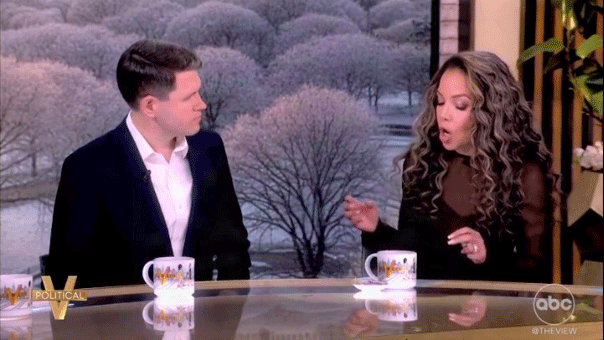Jonathan Turley on stunning developments in Durham probe
Fox News contributor Jonathan Turley weighs in after learning the FBI hired informant with ties to debunked dossier on 'Special Report.'
The liberal media watchdog the Columbia Journalism Review (CJR) published a wide-ranging retrospective of the media's Russiagate coverage that examined several news organizations and their various roles throughout the Trump-Russia saga, leveling the most criticism toward The New York Times.
"No narrative did more to shape Trump’s relations with the press than Russiagate. The story, which included the Steele dossier and the Mueller report among other totemic moments, resulted in Pulitzer Prizes as well as embarrassing retractions and damaged careers," CJR executive editor Kyle Pope wrote in an editor's note.
Pope explained that the CJR spent the past 18 months "examining the American media’s coverage of Trump and Russia in granular detail" to determine what it means as Americans inch closer to the 2024 election.
The findings were published in a lengthy, four-part series. The first section begins with a story about then-New York Times executive editor Dean Baquet’s reaction when he found out Special Counsel Robert Mueller didn’t plan to pursue Trump’s ousting, telling his staff "Holy s---, Bob Mueller is not going to do it."
"Baquet, speaking to his colleagues in a town hall meeting soon after the testimony concluded, acknowledged the Times had been caught ‘a little tiny bit flat-footed’ by the outcome of Mueller’s investigation," wrote Jeff Gerth, the investigative reporter who authored the lengthy CJR retrospective.
"That would prove to be more than an understatement," Gerth continued. "But neither Baquet nor his successor, nor any of the paper’s reporters, would offer anything like a postmortem of the paper’s Trump-Russia saga, unlike the examination the Times did of its coverage before the Iraq War."
Gerth believes the Times damaged its credibility outside its "own bubble" and that even famed journalist Bob Woodward told him coverage of the Russia probe "wasn’t handled well."
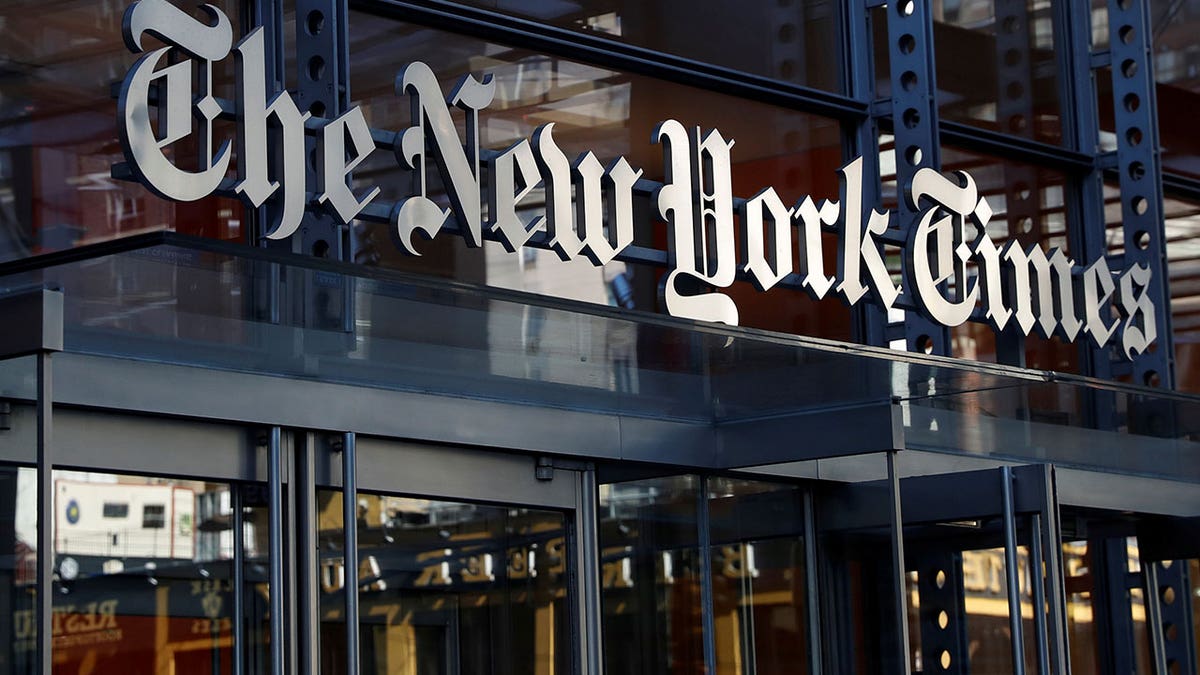
The New York Times was skewered by the liberal media watchdog the Columbia Journalism Review over its coverage of Russiagate. (Reuters/Shannon Stapleton/File Photo)
The examination of the Times' questionable coverage began even before Trump was elected into office, highlighting a report from August 2016 claiming Trump campaign chairman Paul Manafort allegedly accepted $13 million in cash payments from pro-Russia entities in Ukraine. While he didn't deny the ballpark figure he received, Manafort insisted "the cash angle was clearly wrong." But as Gerth noted, the Times "won a Pulitzer Prize for the work on Manafort."
The Times appeared to go 180 in its coverage. As Gerth noted, it ran the headline, "Investigating Donald Trump, FBI Sees No Clear Link to Russia," in October 2016, pertaining to the conspiracy of secret communications between the Trump Organization and the Kremlin-linked Alfa Bank. But in January 2017, just days before Trump's inauguration, it ran, "Intercepted Russian Communications Part of Inquiry into Trump Associates."
Gerth wrote that story "evoked a strong reaction from [Peter] Strzok, who was leading the FBI inquiry: ‘no substance and largely wrong,’ he texted, adding ‘the press is going to undermine its credibility.’"
The paper's coverage escalated, as laid out in part two of CJR's retrospective, with a report published in February 2017 headlined, "Trump Campaign Aides Had Repeated Contacts With Russian Intelligence," noting Baquet personally signed off with running it, calling it the "biggest story in years."
Despite Baquet's expressed desire for details to be included in the report and to point out whether contacts were considered "innocent" or "sinister," the published details were vague and few. Noted Gerth, "The piece did contain a disclaimer up high, noting that their sources, 'so far,' had seen ‘no evidence’ of the Trump campaign colluding with the Russians," adding "But in the next paragraph it reported anonymous officials being 'alarmed' about the supposed Russian-Trump contacts because they occurred while Trump made his comments in Florida in July 2016 wondering whether Russia could find Hillary’s missing emails."
"The story said ‘the FBI declined to comment.’ In fact, the FBI was quickly ripping the piece to shreds, in a series of annotated comments by Strzok, who managed the Russia case," Gerth wrote. "His analysis, prepared for his bosses, found numerous inaccuracies, including a categorical refutation of the lead and headline; 'we are unaware,' Strzok wrote, ‘of ANY Trump advisers engaging in conversations with Russian intelligence officials.’ Comey immediately checked with other intelligence agencies to see if they had any such evidence, came up empty, and relayed his findings to a closed Senate briefing, according to testimony at a Senate hearing months later."
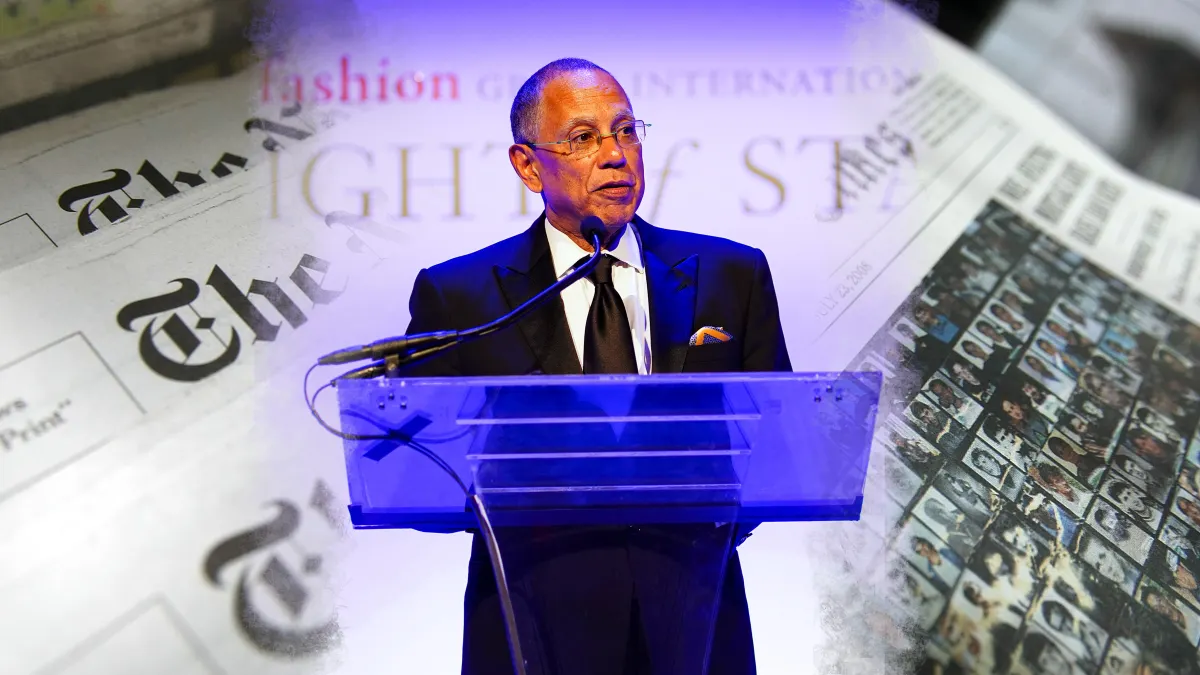
Dean Baquet, who served as the New York Times executive editor during the Russiagate saga, was floored by the lackluster conclusion of the Mueller probe. (Mario Tama/Getty Images | Sean Zanni/Patrick McMullan via Getty Images)
The Times appeared to legitimize Christopher Steele, the ex-British spy who authored the infamous dossier, claiming he had "a credible track record" while Steele's so-called "primary" source was telling the FBI that Steele "misstated or exaggerated" in his report and that information stemming from Russia was "rumor and speculation."
Part three offered examples of the Times' slight-of-hand coverage against Trump in comparison to other hostile outlets. For example, Trump explained his decision to fire FBI Director James Comey, mentioning the "Russia thing" as being a "made-up story" to NBC's Lester Holt but acknowledged the firing would likely "lengthen out the investigation."
"The media focused on the ‘Russia thing’ quote; the New York Times did five stories over the next week citing the 'Russia thing' remarks but leaving out the fuller context. The Post and CNN, by comparison, included additional language in their first-day story," Gerth wrote.
In another instance, the Times avoided covering some of the more damning texts from Peter Strzok, who wrote "there’s no big there, there" shortly after the appointment of Special Counsel Robert Mueller, something Gerth noted was covered by the Wall Street Journal and the Washington Post.
While one former Times reporter admitted to Gerth "We should have run it," a spokesperson for the Times told him it reported on the Russiagate saga "thoroughly and in line with our editorial standards."
Gerth also highlighted how the Times was the first to report on the infamous 2016 Trump Tower meeting with Donald Trump Jr. and a Russian lawyer, which fueled the collusion narrative even further despite that meeting being a "flop." And how the Times reported that then-White House Counsel Donald McGahn threatened to resign after Trump "order" Mueller's firing, but McGahn never told Trump he was considering resigning.
He then went into the Times' favoritism towards Democrats versus Republicans, describing a House GOP memo spearheaded by Devin Nunes about alleged FBI abuses in the FISA surveillance of Trump campaign aide Carter Page "politically charged" that "outraged Democrats" while omitting the claim that the Steele dossier was "essential" to the warrant. But then while reporting the Democrats' own memo, the Times called it a "forceful rebuttal" to Trump's complaints of the investigation.
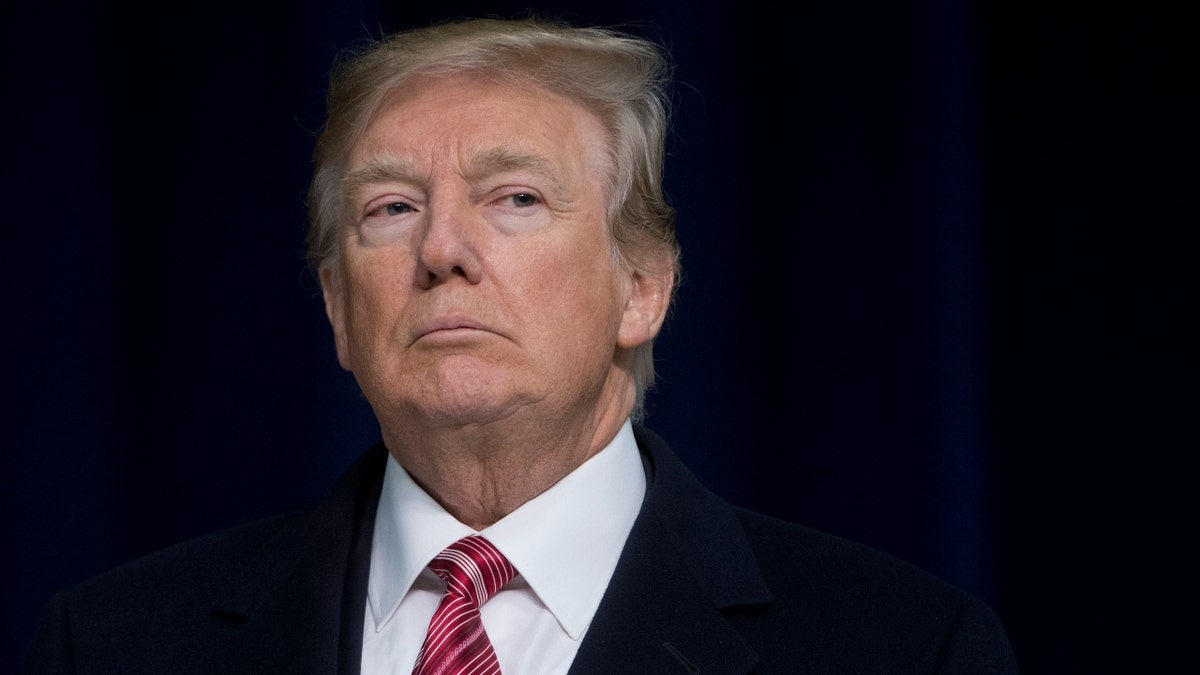
Former President Donald Trump repeatedly attacked The New York Times and other media outlets for their coverage of the Russia investigation. (Saul Loeb/AFP via Getty Images)
Part four included an additional instance of the Times' bias by omission in its coverage of Trump's 2018 Helsinki press conference alongside Russian President Vladimir Putin. Trump was asked whether U.S. intelligence or Putin should be believed when it comes to 2016 election meddling. Trump responded by saying "I don’t see any reason why it would be" Russia that was responsible but added he had "great confidence in my intelligence people."
"The first remark received all the attention. Some outlets, like the Times, didn’t include his comments about ‘great confidence’ in US intelligence in their stories, while others, such as the Post, did," Gerth wrote.
Gerth detailed the Times' narrative about Russia's interference in the 2016 election despite intelligence officials assessing in January 2017 that "the impact that Russian activities had on the outcome of the 2016 election" couldn't be measured.
"The Times weighed in, at over ten thousand words in September, with its own verdict: ‘The Plot to Subvert an Election,’ the headline read. The first sentence described an obscure banner of Putin that unfurled on his birthday, a few weeks before the election, on a Manhattan bridge. The report quickly noted that the banner was promoted by a fake Twitter account that ultimately was traced back to the Internet Research Agency (IRA), a privately owned troll operation in Russia," Gerth wrote. "This was part, the Times concluded in the fourth paragraph, of 'the most effective foreign interference in an American election in history.' To help buttress its sweeping conclusion, the Times wrote that the Facebook posts by the IRA had an 'eventual audience of 126 million Americans,' describing that as an ‘impressive’ reach that almost matched the numbers of voters in the election."
The "eventual audience of 126 million Americans" claim by the Times was called "bogus" by veteran journalist Gareth Porter since that figure was only a "potential audience," saying that and the paper's omission that Facebook users were exposed to 33 trillion news feeds during that time period "should vie in the annals of journalism as one of the most spectacularly misleading use of statistics of all time."
The retrospective also touched on the fallout of the Durham probe and how its findings crushed the credibility of the Steele dossier and the media's coverage of it as a result.
"It prompted the Washington Post to retract large chunks of a 2017 article in November 2021, and to follow with a long review of Steele’s sources and methods. The Wall Street Journal and CNN did similar looks back. The Times has offered no such retraction, though the paper and other news organizations were quick to highlight the lack of firsthand evidence for many of the dossier’s substantive allegations," Gerth wrote.
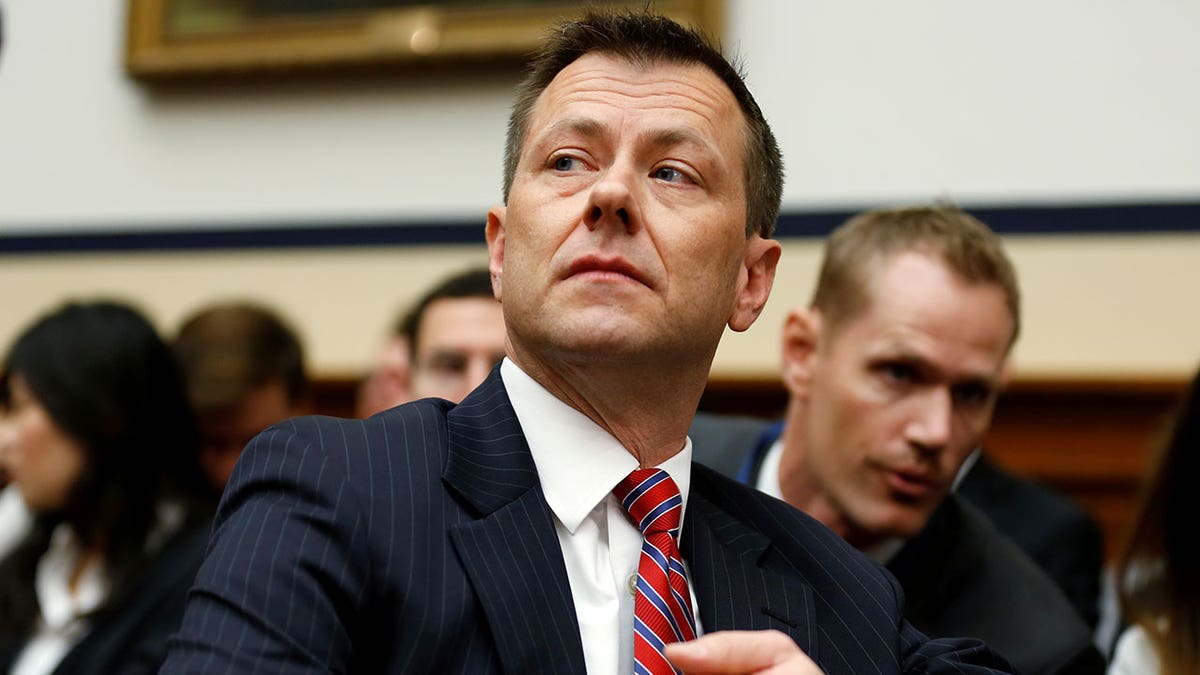
Ex-FBI official Peter Strzok, who was spearheading the Russia probe until his dismissal, was highly critical of the New York Times' coverage. (Reuters)
In his "afterword" section, Gerth concluded "the erosion of journalistic norms and the media’s own lack of transparency about its work" have fueled distrust in the media broadly and that reporting facts that "run counter to the prevailing narrative."
"In January 2018, for example, the New York Times ignored a publicly available document showing that the FBI’s lead investigator didn’t think, after ten months of inquiry into possible Trump-Russia ties, that there was much there. This omission disserved Times readers. The paper says its reporting was thorough and ‘in line with our editorial standards,'" Gerth, a former Times reporter, wrote. "Another axiom of journalism that was sometimes neglected in the Trump-Russia coverage was the failure to seek and reflect comment from people who are the subject of serious criticism. The Times guidelines call it a 'special obligation.' Yet in stories by the Times involving such disparate figures as Joseph Mifsud (the Maltese academic who supposedly started the whole FBI inquiry), Christopher Steele (the former British spy who authored the dossier), and Konstantin Kilimnik (the consultant cited by some as the best evidence of collusion between Russia and Trump), the paper’s reporters failed to include comment from the person being criticized."
CLICK HERE TO GET THE FOX NEWS APP
He also took aim at the Times' frequent reliance on vague anonymous sources throughout its Russiagate coverage, particularly the catchphrase "people (or person) familiar with" the matter.
"The Times used it over a thousand times in stories involving Trump and Russia between October 2016 and the end of his presidency, according to a Nexis search," Gerth wrote. "The last executive editor I worked for, Bill Keller, frowned on its use. He told the staff repeatedly the phrase was ‘so vague it could even mean the reporter.’ The Times, in a statement to CJR, said, 'We have strong rules in place governing the use of anonymous sources."
The New York Times did not immediately respond to Fox News' request for comment.



















